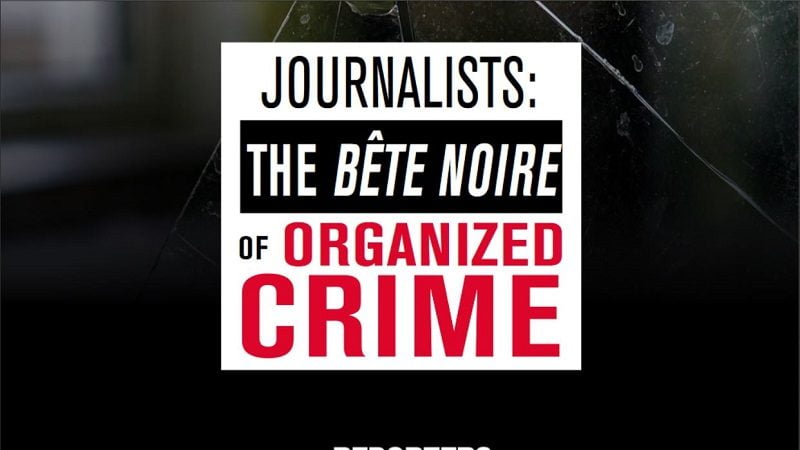More than 30 journalists have been killed worldwide by criminal organisations since the start of 2017, according to a new report by international press freedom organisation Reporters Without Borders (RSF) that appealed to governments to provide adequate support and protection for those who choose to take risks in the public interest over being silent.
“The only choice for journalists who uncover facts about organised crime is often between saying nothing and risking their lives,” according to the report entitled ‘Journalists: The Bête Noire of Organised Crime’. It is based on months of research and interviews with targeted journalists, their colleagues and their families.
In Europe, at least two investigative reporters have been murdered in connection with their work: Daphne Caruana Galizia, blown up a bomb under her car in Malta in October 2017, and Ján Kuciak, shot dead at his home in Slovakia, together with his fiancée, in February 2018.
On Caruana Galizia, the report states: “[She] never gave up, constantly denouncing corruption within Malta’s political class, as well as the intimidation to which she was subjected. She had for years been the target of increasingly specific and violent threats, many of them coming from the ruling Labour Party”.
RSF notes that the house in which she lived with her family was set on fire several times. Her dog was found with its throat cut on her doorstep. And she was finally killed by a bomb placed under her car on October 16, 2017.
“Journalists who cover dangerous subjects such as organised crime often find themselves alone and vulnerable in the face of reprisals”, RSF secretary-general Christophe Deloire said.
Some of those interviewed in the report describe how criminal groups set fire to their homes or targeted their families. Others talk about the colleagues or family members who went missing or were murdered in connection with their reporting. Organised crime hates publicity and stops at nothing to silence overly curious journalists, everyone said.
Europe was not spared. Caruana Galizia and Kuciak had both worked on shady financial dealings allegedly involving local businessmen and politicians. In Italy, Roberto Saviano is one of 10 journalists who are protected day and night by police bodyguards. Paolo Borrometti, the target of a mafia murder plot in Sicily, is another. In all, more than 200 Italian journalists received some kind of police protection last year.
The only choice for journalist who uncover facts about organised crime is often between saying nothing and risking their lives
Organised crime knows no borders. At least 10 journalists have been killed by organised crime this year in Brazil, Colombia and Mexico, where the drug cartels hold sway. The actual figure could be much higher because criminals and politicians often ally against journalists and impunity reigns in the countries.
In India, Cambodia and some African countries, criminal groups make a fortune from breaking environmental rules to plunder natural resources. Journalists who shed light on trafficking in minerals, timber and petroleum are exposed to terrible reprisals. Sandeep Sharma, an Indian journalist who investigated a local “sand mafia” was deliberately run down and killed by a dumper truck in March.
RSF asks: “What can journalists do in the face of organised crime’s far-reaching influence, in which officials often collude, at least passively? How can they continue to work when they know that organised crime stops at nothing, when they know they are putting themselves and their families at risk?”
In Japan, the yakuza had no qualms about murdering the well-known journalist Mizoguchi Atsushi’s son in retaliation for his reporting in 2006. Self-censorship has been the rule ever since.
In the face of such violence, some journalists have given up. This was the painful decision that the owner of the Mexican newspaper Norte de Ciudad Juárez took after one of his top journalists, Miroslava Breach, was murdered last year.
Others, such as Pavla Holcová, a Czech journalist who collaborated with Kuciak, wield their pens as defensive weapons, regarding their coverage of criminal groups’ illegal activities as the best way of protecting themselves. But this means teaming up with other reporters in order to reduce the risks.
“It’s a collective response to the mob,” RSF said.














